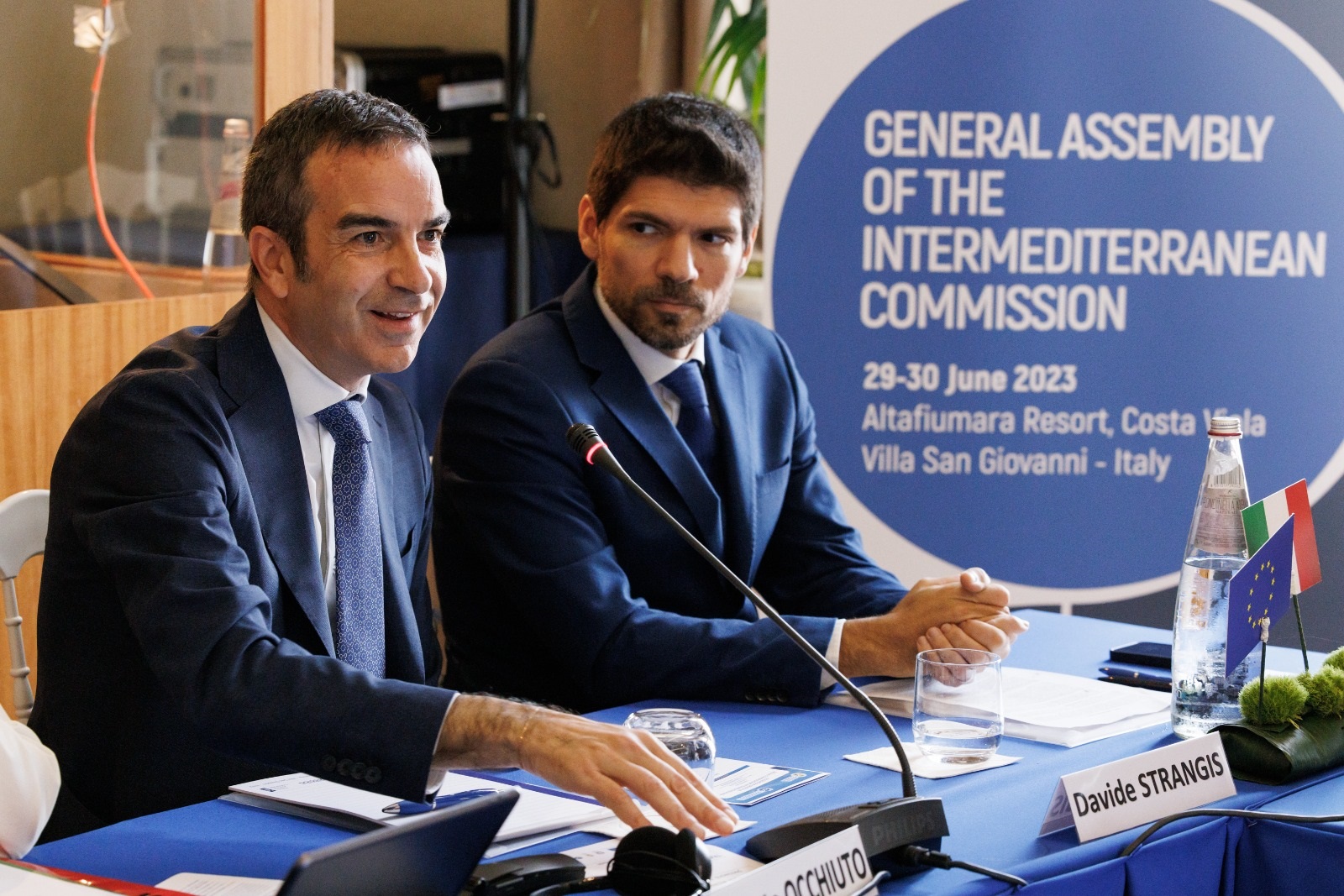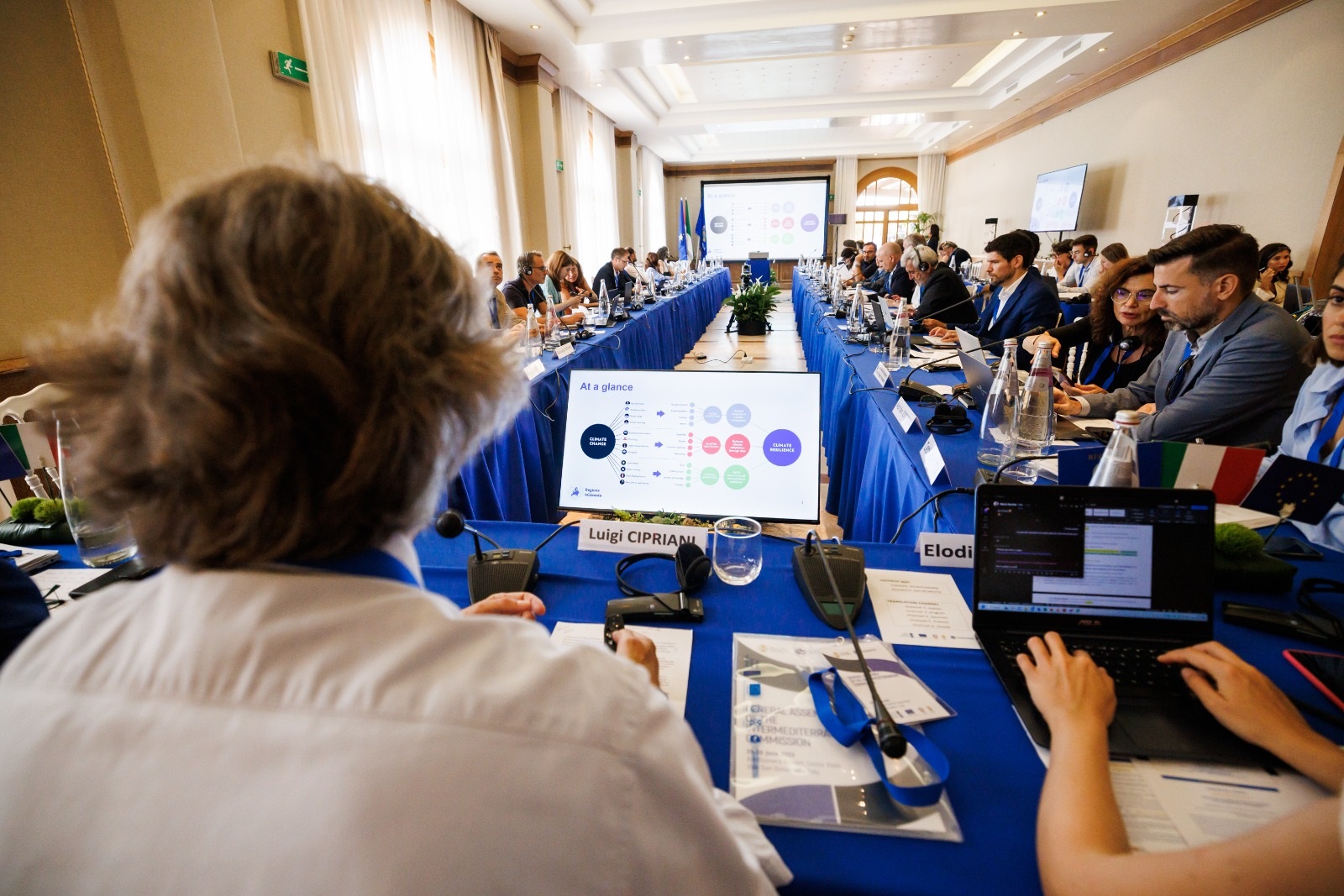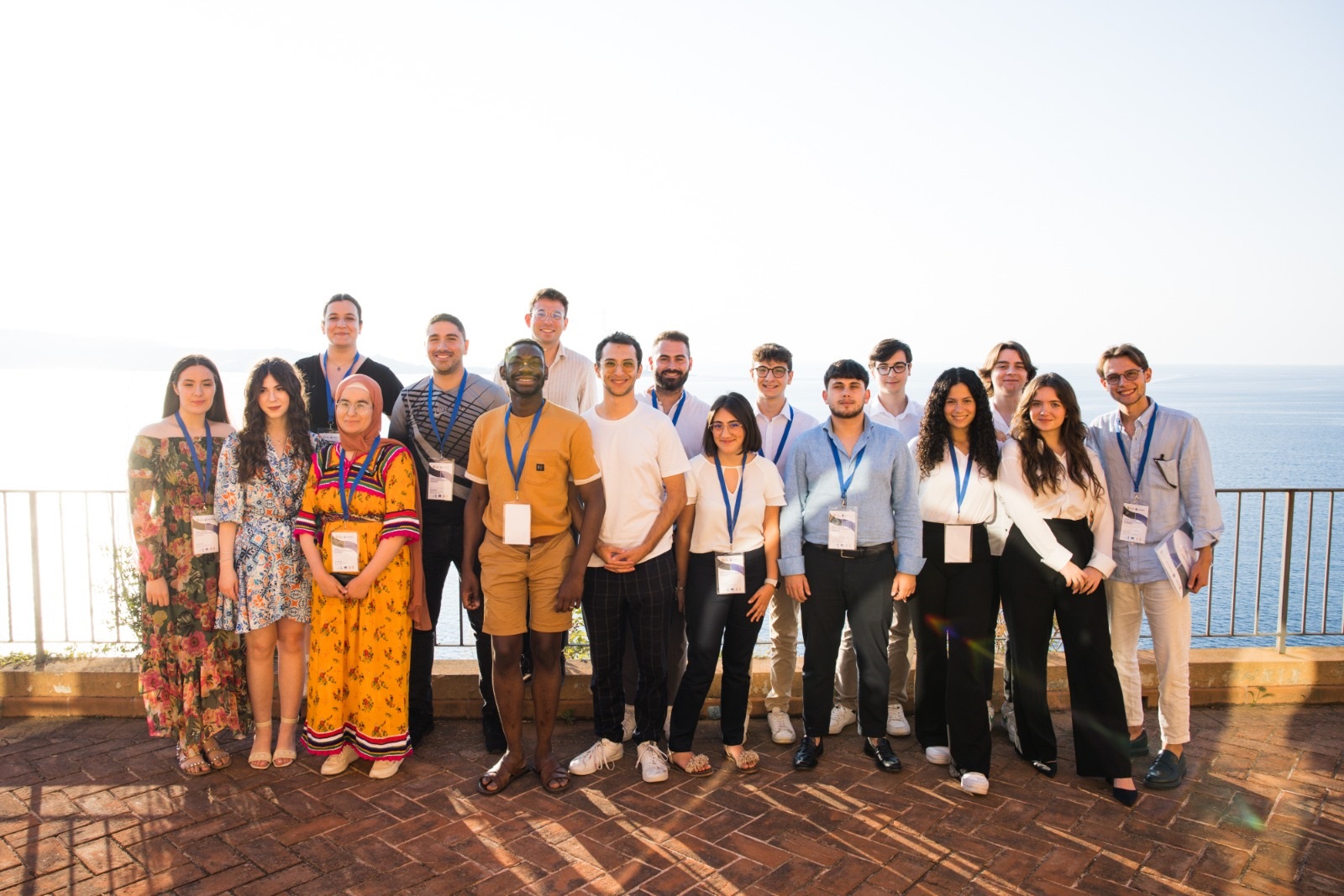03 July 2023


Strengthening the cooperation between the Mediterranean's regions and local authorities to better address current and future challenges and to reaffirm the centrality of a maritime area that is strategic for the world balance, stability and social, economic and cultural development of the European Union: this is the key message, illustrated in a document articulated in 15 points, that emerged from the two-day General Assembly of the Intermediterranean Commission, which took place in Calabria (Italy) on June 29 and 30, 2023 and was participated by 40 regions of 8 EU Member States and other countries (Albania, Cyprus, France, Greece, Italy, Malta, Morocco and Spain).
The Intermediterranean Commission is one of the 6 areas of intervention of the CPMR - Commission of Peripheral Maritime Regions, whose aim is to promote dialogue and territorial cooperation in the Mediterranean, with a special focus on transportation, integrated maritime policy, economic and social cohesion, water, and energy.
Antonio Tajani, Minister of Foreign Affairs and International Cooperation, Nello Musumeci, Minister for Civil Protection and the Policies of the Sea, Michele Emiliano, President of the Puglia Region, also took part in the meeting.

Roberto Occhiuto, new President of the Intermediterranean Commission, and Davide Strangis, Deputy Secretary General of the CPMR
ROBERTO OCCHIUTO ELECTED NEW PRESIDENT OF THE INTERMEDITERRANEAN COMMISSION
After the working groups and speeches, the General Assembly elected Roberto Occhiuto, current President of the Calabria Region, as the new President of the Intermediterranean Commission
"Supporting the creation of a macro-regional strategy on a Mediterranean scale will be one of our main objectives, and we must do so with a shared multi-level governance and an approach that responds to territorial needs and specificities" said President Roberto Occhiuto. "The Inter-Mediterranean Commission, which I am now honoured to chair, must become even more important, we must make ourselves known, we must stimulate the active participation of political decision-makers, together with technical delegations from different regions, we must work to make even more starting with the great work that has being done so far. The dossiers and documents we produce must be transformed into political actions, into decisions that can give greater weight to the regions bordering on the southern shore of the Mediterranean. Calabria suffers from many issues, with respect to which it has not yet worked out all the necessary solutions and tools, but wants to contribute concretely to this common effort, to the benefit of all the regions that are part of this organization, but also those that are not yet part of it. What unites us will keep us strongly engaged in the search for inclusion and collaboration for the improvement of the lives of our citizens and young people. The Mediterranean has a thousand-year history, to us the task of preserving it and evolving it under the banner of responsibility, sustainability, development, for the future of our territories and for the generations to come", commented the President of the Calabria Region and new President of the Intermediterranean Commission.
THE FINAL POLICY PAPER
In the final policy document, addressed to the European, Mediterranean and international institutions, as well as to national and sub-State bodies and stakeholders in the Mediterranean, the Intermediterranean Commission has emphasized the necessity to further strengthen the collaboration with non-EU coastal Countries in order to reach common objectives in the social, economic and environmental field. In this regard, the need for a multi-level governance has emerged, with regional and local authorities at the forefront, strong in their proximity to citizens whose needs and expectations they know directly. The final document stressed the importance of the latest actions that have sought at creating a Mediterranean macro-regional strategy and called on the Spanish Presidency of the Council of the EU in 2023 and the other Member States to continue swiftly in this direction. Supporting the creation of a macro-regional strategy on a Mediterranean scale is one of the most important works of the Intermediterranean Commission in support of greater cohesion in the basin, based on the principles of a gradual and voluntary approach and shared multi-level governance.
THE MEDITERRANEAN MACRO-REGIONAL STRATEGY AND ITS IMPORTANCE
In addition to existing initiatives and programmes, a macro-regional strategy would allow for greater coherence and integration between the actions already in place, while allowing complementarity, more rational use of resources and efficient joint work to find common ground for economic, social and environmental cohesion and solutions to shared challenges. This is an aspect of particular importance in order to continue to support the Blue Economy, understood as a complex of components linked in various ways to the marine economy, which must be the fulcrum of the sustainable development of the Mediterranean; the populations on the shores of the Mediterranean, whose economies depend heavily on the blue sectors, including coastal and maritime tourism, should be assisted and encouraged to implement policies aimed at ensuring their socio-economic and environmental sustainability of the maritime economy.

The meeting room in the city of Villa San Giovanni, Calabria, Italy
THE MAIN TOPICS OF DISCUSSION
Among the main topics discussed, there were the EU's Islands Pact, the Political Declaration against desertification, the Mediterranean Sea depollution, the new European Agenda for Innovation, the messages contained in the Granada Charter on Sustainable Tourism. The Commission has reiterated its commitment to monitoring the Maritime Spatial Planning (MSP) and Marine Strategy Framework Directive (MSFD), the Nature Restoration Law (NRL) and the Common Fisheries Policy (CFP), with the aim of identifying the main issues and opportunities for the Mediterranean regions, also in view of their reviews and implementations.
With regards to a strategic issue such as energy, the Commission stressed the need to use the resources made available by the EU and other programmes for the energy transition, as well as to properly assess the related environmental impacts. The Commission has welcomed the position of the Council of the EU that recognizes the role of the ports in the adoption of alternative energetic solutions and its will to integrate this approach in the TEN-T, EU's trans-European transport network policy.
The Commission also confirmed the centrality of instruments such as the European Neighbourhood Policy (ENP), the European Union Strategy for the Adriatic and Ionian Region (EUSAIR) and the European Initiative for the Western Mediterranean Basin (WESTMED), with a view to providing coordinated responses to similar objectives, challenges and solutions.
The alignment of transnational cooperation programmes with the cross-cutting integration of their objectives and activities was welcomed, also with regard to reference strategies in the Mediterranean and their reinforcement has been requested also at the financial level in the future. the Intermediterranean Commission has emphasized with pride the involvement of the Mediterranean Youth Council (MYC) in the meetings and events of the Conference of the Peripheral Regions and Marine and the Commission, as part of its strategic plan to strengthen interactions and intercultural dialogue with young people for the future of our Regions.

The Mediterranean Youth Council's representatives at the General Assembly
